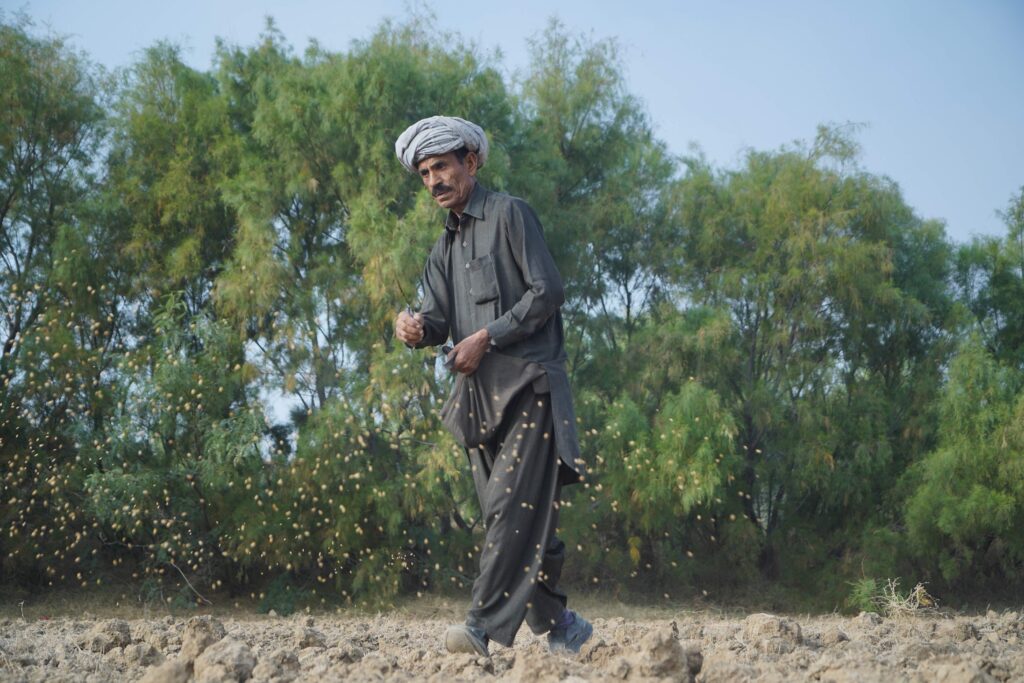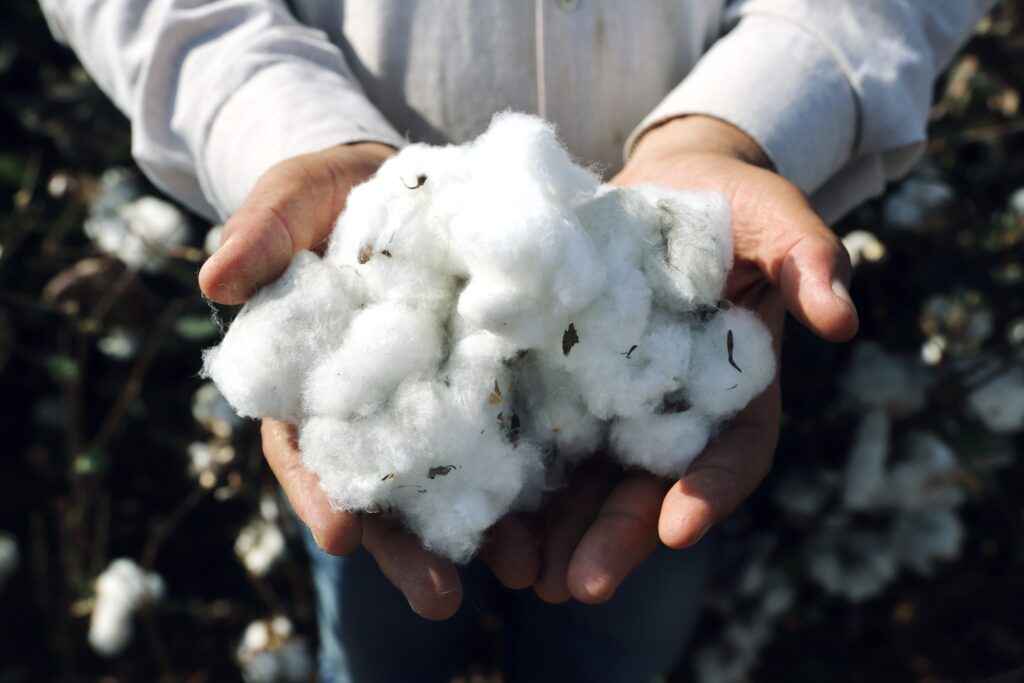In a sector where credible sustainability increasingly hinges on hard evidence, data is the foundation on which lasting change and trusted communication must be built. At the Organic Cotton Accelerator (OCA), data isn’t collected for its own sake; it’s used to deliver tangible value to farmers and drive measurable improvements across organic cotton systems. At this year’s Better Cotton Conference in Izmir, Türkiye, OCA contributed to two key discussions on how high-quality data can strengthen outcomes on the ground and support reliable claims.
Using data to deepen impact on organic cotton farms
OCA’s Programme Director, Ruud Schute, participated in the panel The Data Trade-Off: Knowing More or Doing More? Using Data to Deepen Impact on Cotton Farms, which examined the tension between rising insights demands and on-the-ground realities.
With over five years of continuous farm-level data collection and analysis, OCA holds one of the most comprehensive data sets in the cotton sector. While more indicators are important for sector-wide accountability, they place mounting pressure on producers and programme partners. OCA is working to mitigate this pressure through support and capacity-building. We aim to use existing data wherever possible, apply a risk-based approach to verification, and link data collection directly to farmer benefits.
“It’s up to multi-stakeholders to strike a balance between what’s rational and what’s reasonable… Our role is to keep that perspective and ensure we’re asking the right questions, not chasing solutions in search of a problem,” said Schute.
The reality on the ground
Collecting high-quality data from smallholder cotton farms is challenging due to scattered farm locations and reporting systems not tailored to their needs. Building trust and capturing meaningful data requires ongoing engagement and clear benefits for farmers. The process can be slow and costly, especially when involving ISO-certified verification or lab tests. This underscores the urgent need to simplify, standardise, and make data collection more accessible.
“It’s simply not feasible for smallholder farmers to bear the burden of advanced testing, like soil carbon or pesticide residue analysis, which can be extremely expensive. Our role is to ensure farmers are appropriately incentivised for their data and that systems don’t impose unrealistic expectations on those with the fewest resources,” added Schute.
What’s next: A smarter, fairer path forward
To meet rising data demands without overburdening farmers, the sector must evolve. OCA’s approach is rooted in three complementary approaches:
Strengthen what works
Ensure that farmers feel the benefit of their participation through incentives like insetting credits and premium payments. Support continuous improvement by making sustainable practices and diverse cropping systems more profitable.
Reward best practice
Incentivise both farmers and data enumerators for high-quality contributions. Apply a risk-based approach to reduce data demands where performance is strong and rely on expert validators where quality can replace quantity. Build robust baselines using geo-referenced, farm-level data.
Innovate with purpose
Invest in remote sensing and digital verification to improve efficiency and protect high conservation areas. Shiftft from manual surveys to digital platforms that serve both farmers and programme staff. Promote digital payments to lower costs and boost traceability.
From green claims to trust-building
Data isn’t just about monitoring practices or verifying impact; it’s also the foundation of how sustainability is communicated. As regulations tighten and expectations rise, credible data is becoming essential not only for accountability on the ground but also for building trust with consumers and stakeholders.
Ioana Betieanu, OCA’s Communications and Public Affairs Director, discussed OCA’s commitment to credible, purposeful data in the panel From Obligation to Opportunity: Reclaiming Trust in a New Era of Green Claims. This timely discussion tackled the growing tension between public frustration over greenwashing and the quieter, credible progress happening on the ground.
As sustainability claims come under increasing regulatory scrutiny, the sector faces a pivotal moment. The EU’s Empowering Consumers Directive, already adopted, bans vague claims like “eco-friendly” unless backed by recognised certification, setting the legal minimum. Meanwhile, the Green Claims Directive will go even further, requiring companies to substantiate claims using lifecycle-based data, third-party verification, and public transparency. Still under negotiation, this directive could either elevate credible sustainability efforts or risk burying them in red tape.
“We’re already seeing some brands go silent on sustainability,” Betieanu warned, “not because they haven’t made progress, but because they fear getting it wrong.” This silence, she added, risks hiding genuine impact, confusing consumers, and slowing sector-wide transformation.
Her call to action: Now is not the time to retreat. If companies have invested in sustainable cotton, traceability, or farmer resilience, they must continue making evidence-based, transparent claims. “At OCA, we are working to ensure that our data and guidance help partners navigate this evolving regulatory space, supporting accurate, compliant communications that stay grounded in farmer reality.”
Note: At the time of publication, the Green Claims Directive remains under negotiation in the EU Council, and the final provisions are still subject to change.






